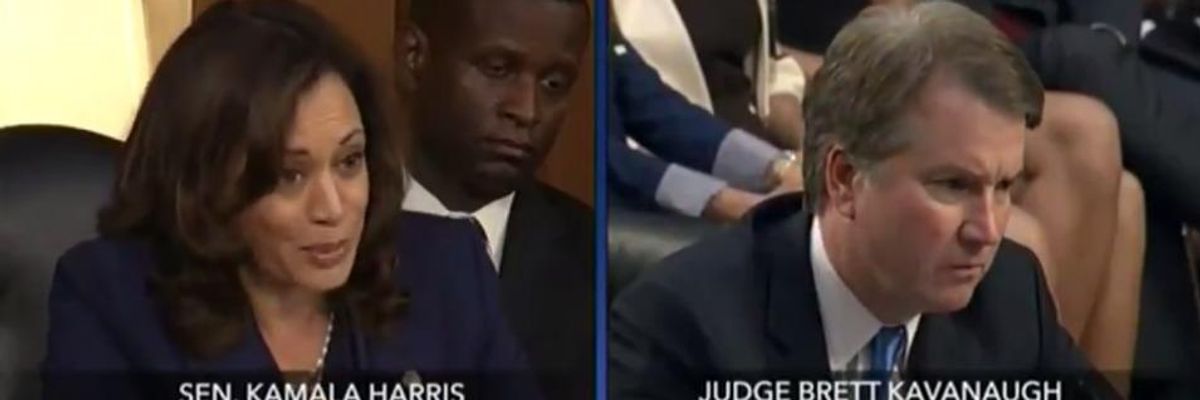Punctuated by several protests from Americans expressing deep concerns with Judge Brett Kavanaugh's anti-choice record and other views, the U.S. Supreme Court nominee's first day of questioning in his confirmation hearing provoked anger among critics over his statements--and non-answers--on abortion rights.
Early in the proceedings, Sen. Dianne Feinstein (D-Calif.) asked President Donald Trump's nominee whether he would uphold Roe vs. Wade, the 1973 decision which enshrined American women's right to abortion care under the U.S. Constitution.
"I don't want to go back to those death tolls," Feinstein said, referring to records showing that beforeRoe, hundreds and sometimes thousands of women died each year from unsafe, illegal abortions and attempts to perform the procedure themselves using knitting needles, coat hangers, and other methods.
"The last two days have underscored, yet again, that if women aren't at the table, we're on the menu." --Cecile Richards, former Planned Parenthood president
Kavanaugh's response betrayed no understanding of the fact that the more than 140 people who have been arrested so far for protesting at his confirmation hearing have been there to express not their "feelings" about abortion access--but the fear of the tangible impact a major reproductive rights rollback would have on women's lives and safety.
"I understand your point of view on that, Senator, and I understand how passionate and how deeply people feel about this issue," Kavanaugh said. "I understand the importance of the issue, and I understand the importance that people attach to the Roe v. Wade decision."
Author Jill Filipovic slammed Kavanaugh's dismissive attempt to dodge the clear issue of whether he would, if confirmed for a lifetime appointment on the high court, protect American women's right to a legal medical procedure.
Later in the hearing, Kavanaugh refused to say whether he agreed with Justice Ruth Bader Ginsburg's straightforward statement, made at her 1993 confirmation hearing, that a woman should be treated as "a fully adult human responsible for her own choices," citing the need to observe "judicial independence" numerous times when Sen. Kamala Harris (D-Calif.) attempted to extract an answer. Seeing that the line of questioning was leading nowhere, Harris moved on to a simpler inquiry.
"Can you think of any laws that give government the power to make decisions about the male body?" Harris asked.
Kavanaugh appeared stumped, eventually conceding, "I'm not thinking of any right now, Senator."
Both exchanges left women's rights advocates more intent than ever to keep the deeply unpopular nominee from being elevated to a position on the Supreme Court.
